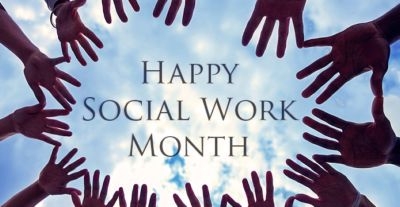Social Work month at NU

March 1 heralds the beginning of National Social Work Month. With a new bachelor of social work degree now available, Nipissing University is helping to celebrate.
On Friday, March 3, Nipissing University is working with the North Bay and District Multicultural Centre and the WKP Kennedy Gallery to host Nascent Roots, a collaborative artmaking workshop. The project will pair a new Canadian individual, couple or family with a social work student from Nipissing University to collaborate on a piece of artwork celebrating memories of home and roots, while allowing them to integrate their visual memories into a collage with the social work student's ideas of Canada.
The workshop runs from 1-4 p.m. at the WKP Gallery in North Bay.
This image transfer workshop uses personal photographs to create a collaborative art piece honouring heritage, memories and new beginnings.
The social work student will bring imagery resembling their experience of being Canadian, using imagery of the cultural and natural landscape surrounding them in their life experiences as a Canadian.
The aim of this activity is not to assimilate the new Canadians into any new culture or life view, but to allow them to integrate their own identity, memories and culture into a piece of artwork that honours those roots while celebrating the fact that those roots stay alive even when they are married with new surroundings, cultures and people.
This workshop is geared towards building community and inclusiveness in North Bay, sending a message which expresses that roots and memories stay alive here in Canada.
Later in the month, on March 21, Nipissing will welcome Gordon Phaneuf, chief executive officer, Child Welfare League of Canada, to campus for a public lecture, titled Social Work: Building a Better Canada for all Children and Youth, in the Weaver Auditorium from 6-8 p.m.
This lecture will explore some of the key trends and developments in Social Work practice in Canada. The potential for positive change in the lives of indigenous and non-indigenous children and youth will be examined in the light of establishment, findings and recommendations of the Truth and Reconciliation Commission; Human Rights Tribunal Ruling; and the Murdered and Missing Indigenous Women and Girls Inquiry. The presentation will address the prospects and challenges for creating a better Canada for children and youth.
